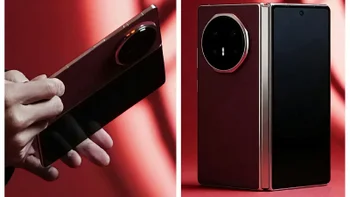FCC to reevaluate its response to mergers in the wireless industry

The FCC, led by its Chairman Julius Genachowski, is looking to reevaluate how it responds to mergers in the wireless industry. The Chairman plans on sending letters to his fellow commissioners, asking them to take a good look at the current process where the FCC has different rules for each proposed merger on a case-by-case basis. The idea is to come up with a set of clear and predictable rules that allow merger participants to know the rules before committing to a deal.
AT&T, which dropped its attempted $39 billion purchase of T-Mobile late last year due to lack of Justice Department and FCC approval, was happy to see the FCC discuss changes to the way it responds to potential deals. Sprint joined along with AT&T, saying that not all spectrum is equal and that new set of rules could help smaller carriers.
Currently, the FCC uses what is known as a "spectrum screen" in looking at deals in the wireless industry including the proposed purchase of spectrum. Deals that violate the screen are given a more strenuous look by the authorities. Sprint spokesman John Taylor said, "The current spectrum screen fails to distinguish between the utility of different spectrum bands for wireless broadband communications." For example, low frequency spectrum can more easily penetrate walls. This is obviously a more valuable piece of spectrum that should call for a different screen to make sure that a company doesn't monopolize the purchase of more valuable airwaves. Meanwhile, John Bergmayer, a lawyer for consumer group Public Knowledge, argues that the FCC is allowing the more valuable chunks of spectrum to end up being owned by Verizon and AT&T, the nation's two largest carriers.
The FCC will review its rules before it auctions off some broadcaster spectrum to cellular companies later this year. The FCC was authorized to conduct the auction as part of tax cut extension legislation passed in Congress.
source: TheHill via BGR
"AT&T has long advocated that the FCC should conduct its review of the spectrum screen in an industry-wide rulemaking where all can participate and a full factual record can be developed. We appreciate this important step, which should eliminate protracted battles about these issues in individual license transfer proceedings."-AT&T spokesman
"The current spectrum screen fails to distinguish between the utility of different spectrum bands for wireless broadband communications. We are pleased that the Commission plans to consider improvements to its spectrum aggregation regulations and we look forward to participating in these discussions."-John Taylor, Sprint spokesman
The FCC will review its rules before it auctions off some broadcaster spectrum to cellular companies later this year. The FCC was authorized to conduct the auction as part of tax cut extension legislation passed in Congress.
source: TheHill via BGR
Follow us on Google News














Things that are NOT allowed:
To help keep our community safe and free from spam, we apply temporary limits to newly created accounts: